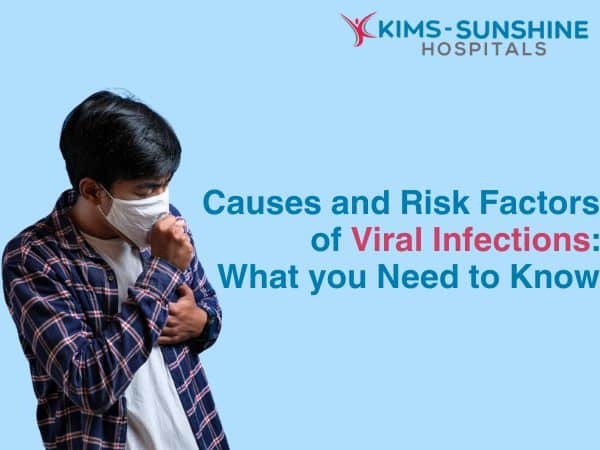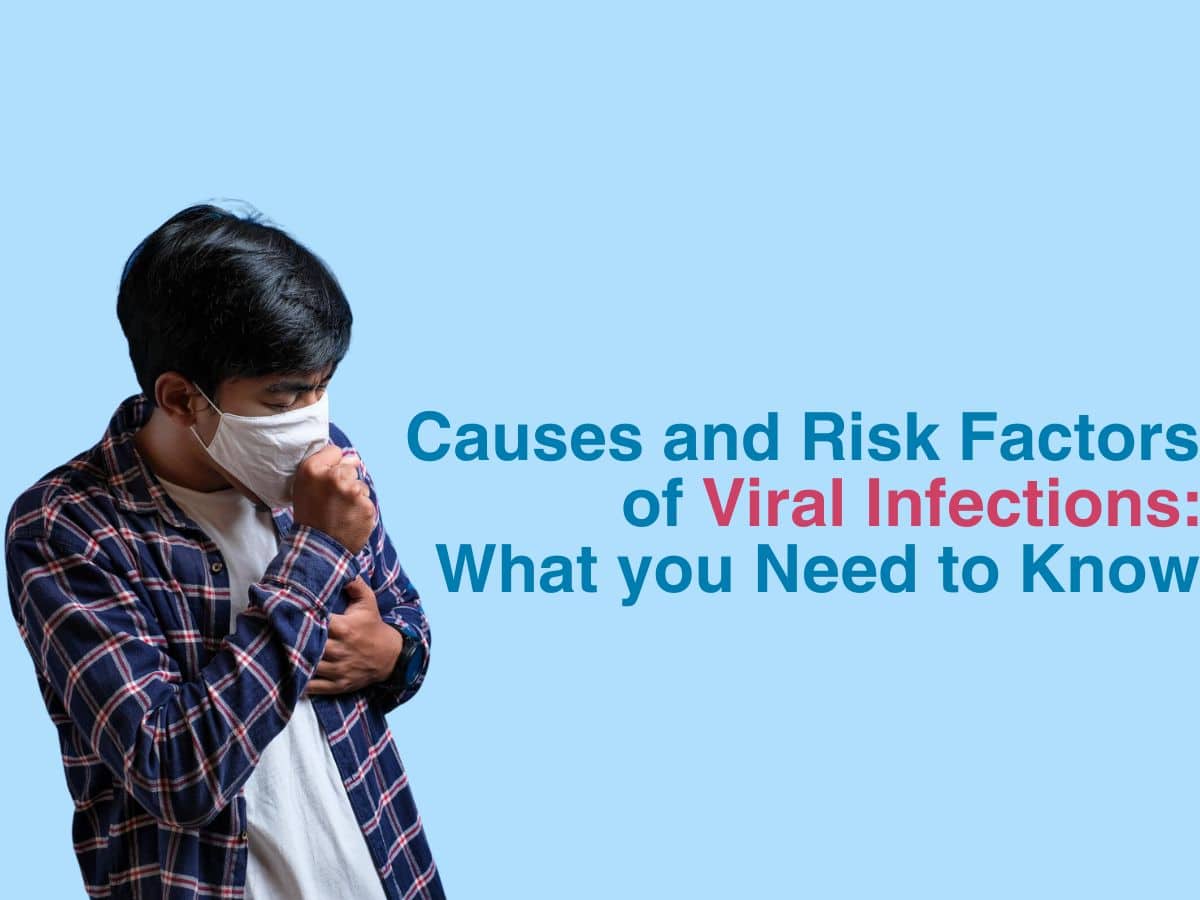
Causes and Risk Factors of Viral Infections: What you Need to Know

Infections that are caused by viruses are termed ‘viral infections’ in general. There are thousands of different kinds of viruses like Herpes, COVID19, or influenza (common cold), among various other possibilities. Viruses are super smart in the sense that they use the host’s (i.e. the affected person) cellular machinery to replicate, and cause large scale infections in the body. Though fever is a common symptom that tells us something is wrong, it is important to be able to differentiate between a viral and bacterial infection.
Why Should I be Worried about Viral Infections?
The thing about viruses- they are not only smart, but also super stealthy. They can lurk around undetected in your body, and then regroup and cause an infection years later (in the form of opportunistic infections, when your immune system is NOT feeling at its best). There are different kinds of possibilities with respect to infections caused- like influenza viruses, stomach flu, respiratory illness, hepatitis (liver disease), dengue, yellow fever, HIV, HPV, skin related infections or even cause neurological deficits (polio) etc. Viruses may also be passed down to the infant when they are born. You need to be worried about contracting a viral infection if you are either a child or old (below 5 or above 60 years of age).
Common Causes of Viral Infections and How They Spread
Let us look at how viruses are transmitted
- Via air – when people cough, sneeze or by contact
- From infected surfaces- which is why routine disinfection or cleaning of countertops, working surfaces, computers, keyboards etc. is a good practice
- Sexual transmission is possible too
- Consumption of contaminated food
It definitely makes sense to keep our surroundings clean, eat clean food and good quality water and wash our hands regularly.
Conclusion
Since viral infections can be contagious, it makes sense to stay home too, to prevent risk. Using protective gear like a mask can help. Blood tests or body fluids (phlegm, urine, cerebrospinal fluid, stool etc.) are normally recommended to check for specific biomarkers. But if you show very specific symptoms related to a particular organ, then imaging may also be recommended.
Frequently Asked Questions

Dr. Tudi Pavan Reddy
MBBS, MD(Internal Medicine)
Sr. Consultant Physician






